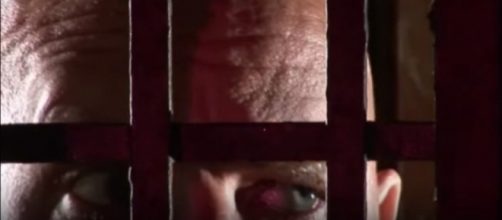Jeffrey Lynn Borden received a reprieve from execution in Alabama on Thursday. Chief U.S. District Judge Keith Watkins stopped the state from carrying out capital punishment on the condemned inmate only hours prior to when Borden was scheduled to have the Lethal Injection protocol administered.
Borden, 56, raised a legal challenge regarding the humaneness of Alabama’s procedure for delivering death. In granting the convicted killer a stay, Judge Watkins pointed out that Alabama’s 11th United States Circuit Court of Appeals ruled in favor of additional legal proceedings.
Challenging execution brings death drug midazolam to center court
Christine Freeman is the executive director of the public defender’s office that is representing Borden. She explained that the effect of halting Borden’s execution, at least for now, is that he has more time to mount an argument against the use of the Midazolam. Midazolam is the sedative that is used in the state’s injection protocol, Reuters relayed.
Borden’s defense lawyers hold the position that midazolam is inadequate when it comes to rendering death row inmates “sufficiently unconscious,” according to Reuters. The defense argument is that without effective sedation, cruel and unusual punishment factor into the injection procedure.
Therefore, the state shouldn’t use the drug in executing inmates.
Alabama Attorney General Steve Marshall’s office said that the state’s top cop is not appealing the stay. His office cited “insufficient time” for the stay to be vacated by the U.S. Supreme Court prior to when the death warrant expired, according to WRBL. The warrant elapsed at midnight on October 5. In light of the date-stamped, expired execution warrant, Marshall said the state intends to set a “new execution date,” Reuters reported.
Marshall attributes the lower federal courts with blocking justice for the families of Borden’s victims. The nation’s high court previously gave the go-ahead with the execution of the convicted killer, who murdered two people, according to the Times Free Press.
Christmas Eve murders condemned inmate committed
On Christmas Eve 1993, Borden murdered Cheryl Borden, his estranged wife, the Times reported. He also fatally shot Roland Harris, her father. According to prosecutors, Borden killed his wife in front of their three children. When her father ran for help, he shot Harris. The murders happened in Gardendale, AL, at Roland and Juanita Harris’ house.
Eddie Deason, who is now retired, was a detective who investigated the murders that had Borden land on death row, WBRC reported. His belief is that Borden has been on death row for far too long. He described the double homicide as “horrific.” He further stated, “If anyone deserves to die, I’m at peace with this.”
Retired detective recalls crime scene
The retired detective recounted being called to the crime scene while he was just finishing having dinner with his own family on that Christmas Eve.
The Borden’s children were on-scene with their mother, who was “dead on the driveway,” according to WBRC. Borden used a .380 caliber semiautomatic pistol when he shot their children’s mother in the back of the head.
WBRC reported that Harris was in the front yard. As he ran toward the front door, he shouted for someone to call 911. Borden pursued Harris, firing shots. Once Harris reached the inside of his home, he collapsed. A bullet hit Harris’s back. Borden fired that fatal shot.
Deason told WBRC that Borden confessed to law enforcement that he killed the father and daughter. WBRC also noted that Borden was questioned about the murders on Christmas. “He had no remorse about it,” according to Deason and WBRC.


